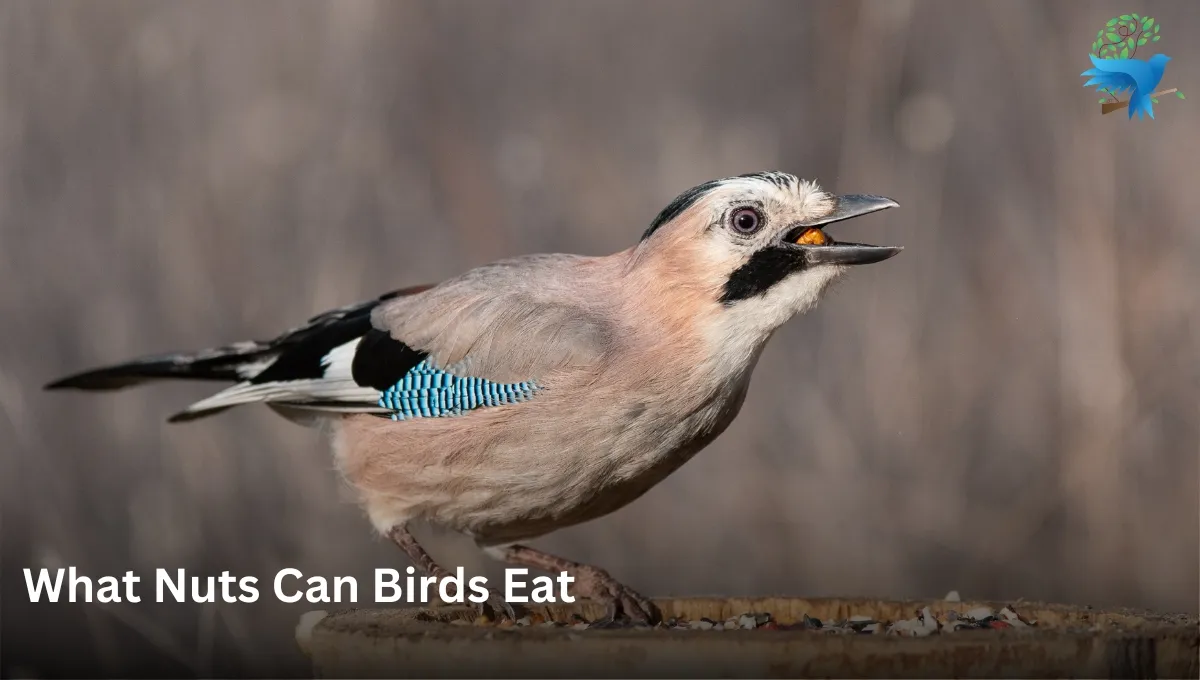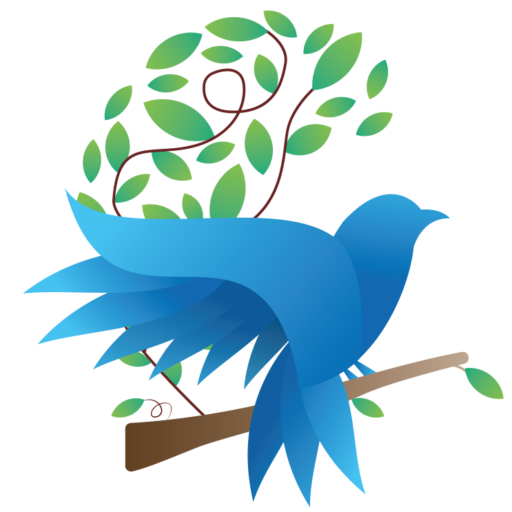What Nuts Can Birds Eat?

Birds require a well-rounded diet to flourish, whether in the wild or as domestic pets. Nuts, recognized for their nutritional benefits in human consumption, can also be a worthwhile supplement to a bird’s dietary regimen.
Nonetheless, not all nuts are appropriate for our winged companions. Recognizing the suitable nuts for birds is vital for their health and longevity.
Bird Nutrition and Dietary Needs
Birds need a balanced diet for optimal health, much like humans. Their diet typically includes seeds, fruits, insects, and sometimes nuts. These foods provide the nutrients necessary for maintaining healthy feathers, high energy levels, and overall vitality.

Nuts, while nutritionally dense, must be offered with caution. They are high in fats and proteins, which can lead to health issues like obesity if consumed excessively.
Additionally, certain nuts may pose choking hazards or contain toxins, so it is important to choose and prepare them carefully for bird consumption.
Bird Dietary Requirements
Understanding the dietary needs of birds is crucial before introducing any new food into their diet. Birds require a balanced diet that includes:
- Protein: Essential for the growth and repair of body tissues.
- Fats: Provide energy and help absorb vitamins. Nuts are good sources of healthy fats.
- Carbohydrates: Provide energy and are important for the functioning of the nervous system.
- Vitamins and Minerals: Necessary for various body functions and maintaining overall health.
Nuts can be a great addition to a birds diet due to their high protein and fat content, but they should be given in moderation as they can also be high in calories.
What Nuts Can Birds Eat?
Providing nuts as part of a bird diet can be a healthy and enjoyable addition. Here is a list of safe and healthy nuts for birds:
Peanuts
Peanuts, while technically legumes are often included in bird diets due to their high protein and fat content. However, they should be unsalted, raw, and unsweetened and offered in moderation due to the potential risk of aflatoxin contamination. They are particularly suitable for larger birds like parrots and jays.
Almonds
Almonds are a healthy and nutritious snack enjoyed by humans and birds alike. They are packed with nutrients such as protein, fiber, healthy fats, calcium, and magnesium. Birds need to be fed with raw almonds that are unsalted and ideally chopped. However, due to their high fat content, these should be provided in moderation, particularly for smaller bird species.
Walnuts
Rich in omega-3 fatty acids, walnuts can be beneficial for birds feather health. Due to their high fat content, feeding should be done in moderation.

Unsalted walnuts, whether crushed or chopped, can serve as an appropriate occasional treat for birds of medium or large size.
Pecans
Pecans, which are rich in monounsaturated fats and packed with over 19 vitamins and minerals, are both safe and nutritious for birds. However, their high fat content necessitates careful feeding. It is recommended to provide them sparingly and in limited amounts. Make sure they are unsalted and divided into smaller fragments to avoid choking hazards.
Cashews
Cashews are safe treats, but should be given in moderation to avoid obesity. They are a good source of monounsaturated fats and contain a variety of vitamins and minerals. It is advisable to occasionally provide larger bird species with small pieces of raw, unsalted cashews.
Hazelnuts
Hazelnuts, although packed with beneficial nutrients, should be given to birds sparingly due to their high fat content. It is suggested to provide unsalted, unshelled hazelnuts in moderation.
Read More: Can Birds Eat Chia Seeds? How To Feed & Nutrition Benefits
Nuts to Avoid for Birds
Most nuts are safe for birds, but certain nuts can be harmful or toxic to birds. Here is a list of nuts that should generally be avoided when feeding birds:
- Salted Nuts: Birds cannot process high levels of salt. Therefore, salted nuts can cause serious illness and even death.
- Roasted Nuts: If nuts are roasted or have any coatings, this is a tell-tale sign of high salt content, which is harmful to birds.
- Processed Nuts: Nuts with flavoring or special coatings should be avoided, as they may contain harmful substances.
- Pistachios: While pistachios are generally safe for birds, they can sometimes be contaminated with aflatoxin, a toxic compound produced by a fungus. Also, if pistachios are salted or have any coatings, this is a clear indication of high salt content, which is harmful to birds.
- Moldy Nuts: Moldy nuts can cause digestive distress and other health problems.
Also, when feeding nuts to birds, it is important to keep them in their natural state and ensure they are fresh and clean. It is crucial to ensure the health and safety of our feathered friends.
Best Practices for Offering Nuts to Birds
Offering nuts to birds can be a great way to provide them with a nutritious food source. Here are some best practices:
- Choose the Right Nuts: Opt for unsalted, raw, and unflavored nuts. The best nuts to offer birds include acorns, almonds, beechnuts, and others.
- Size Matters: Break or chop nuts into smaller pieces to prevent choking hazards. Offering more than just one form of nuts can attract both large and small birds.
- Gradual Introduction: Introduce nuts gradually and monitor the birds response. This can help birdwatchers and owners understand what types of nuts the birds prefer.
- Treat, Not a Meal: Offer nuts as an occasional treat, not a primary diet component. Too many nuts can lead to nutritional imbalances.
- Use the Right Feeders: Offer nuts in specialized nut bird feeders with large holes for easy access, or choose birdseed mixes with nuts in the blend.
Conclusion
In conclusion, there are many safe nuts that birds can eat as part of a balanced diet. Comprehending which nuts are beneficial, for birds is crucial for their health and vitality.
Birds lovers, by thoughtfully providing the appropriate nuts in balanced amounts, can offer their avail friends nourishing snacks that enhance their regular meals.
Additional Resources and References
For more detailed information on bird nutrition and safe feeding habits, it is advisable to consult trustworthy resources such as avian veterinarians, bird care organizations, and credible avian nutritional guides.
FAQ
Can all birds eat nuts?
It is not necessarily true that all birds can consume nuts. There are bird species that might find it challenging to digest nuts, or they might not gain any nutritional advantages from them. It is recommended to get in touch with a vet or a bird specialist for advice tailored to your birds species and personal health status.
How do you tell if a nut is safe for birds?
Nuts that are safe for birds ought to be raw, unsalted, and devoid of any additives or species. It is always a good idea to investigate the appropriateness of a specific type of nut before giving it to your bird.
Are roasted nuts safe for birds?
Roasted nuts frequently have extra oils or salts, which renders them inappropriate for birds. It is best to opt for raw nuts to circumvent any possible health hazards.






